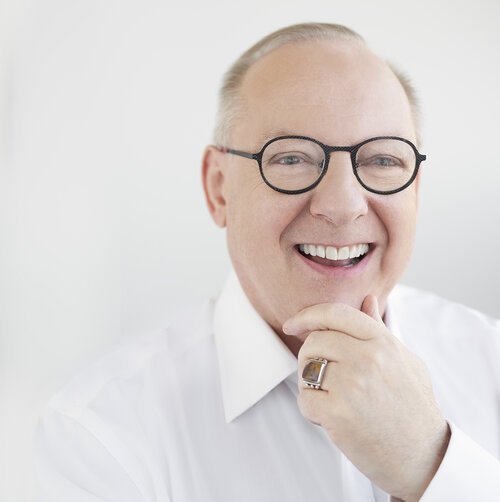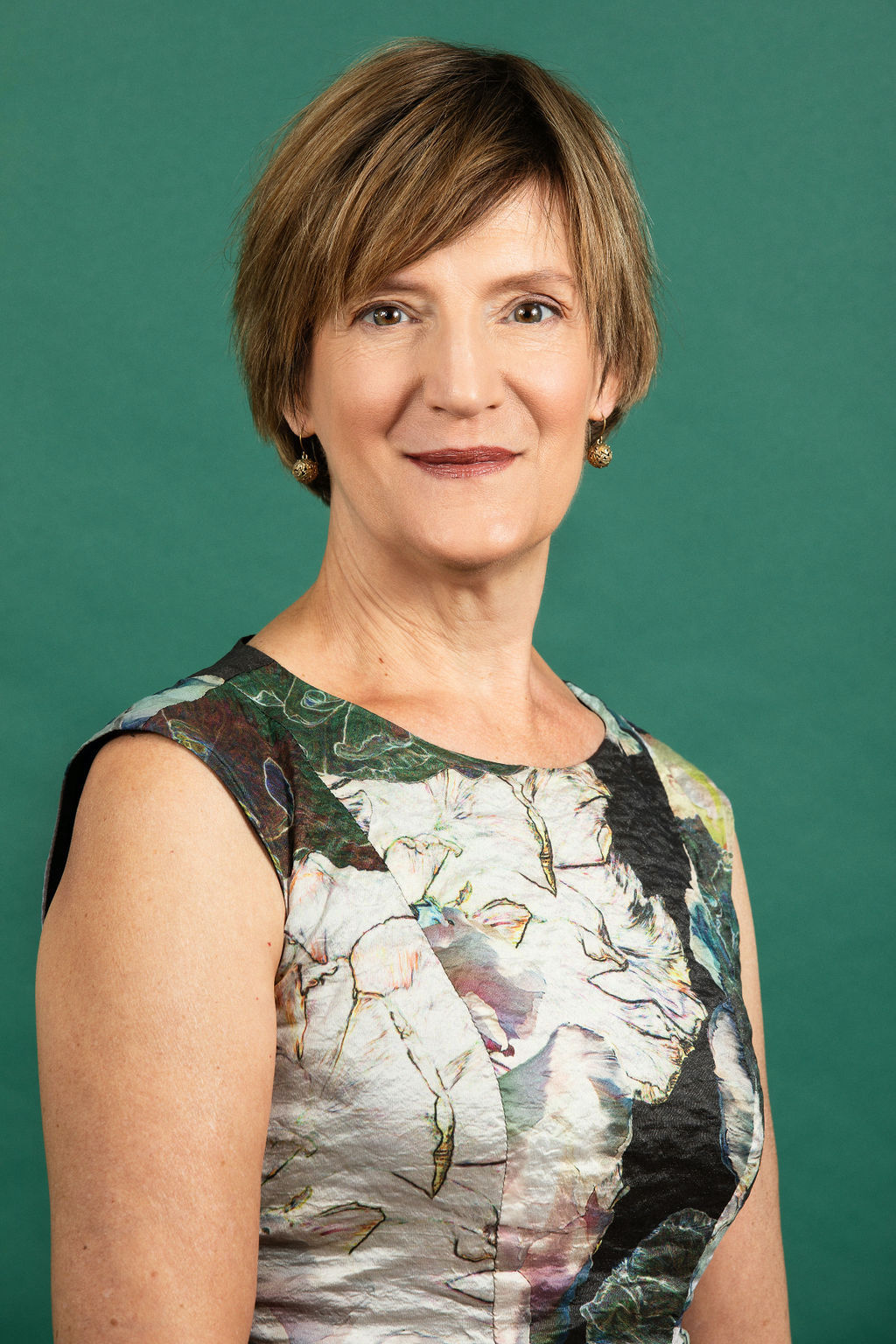The Blattner Lecture Series has been an integral part of the Valley of the Moon Music Festival since the summer of 2018, helping listeners experience each season’s overarching theme more fully. Each season, before selected concerts, we present dynamic speakers to introduce our listeners to different perspectives and to inspire a deeper understanding of the music being performed.
Check back this spring for exciting announcements about the 2025 lectures!
BLATTNER LECTURE ARCHIVES
LOVE & LONGING
Reaching Across The Distance
Summer 2021
2023 BLATTNER LECTURES
NICHOLAS MCGEGAN
Conductor
An expert in 18th century style” (The New Yorker), Nicholas McGegan is in his sixth decade on the podium. Following a 34 year tenure as Music Director of Philharmonia Baroque Orchestra and Chorale, he is now Music Director Laureate. He is also Principal Guest Conductor of Hungary’s Capella Savaria.
McGegan’s approach — intelligent, infused with joy and never dogmatic — has led to appearances with many of the world’s major orchestras, including Cleveland, Chicago, Los Angeles, New York, Philadelphia, San Francisco, Hong Kong, Sydney, and the Royal Concertgebouw, and regular collaboration with choreographer Mark Morris on numerous projects.
His discography includes more than 100 releases spanning five decades, including more than 40 with Philharmonia Baroque Orchestra and Chorale, and close to twenty with Capella Savaria.
He was made an Officer of the Most Excellent Order of the British Empire (OBE) “for services to music overseas”. McGegan is committed to the next generation of musicians, frequently conducting and coaching students in regular engagements at Yale, Juilliard, Harvard, the Colburn School, Aspen Music Festival, and more.
For more information, visit nicholasmcgegan.com or visit his Facebook page
FRANCESCO SPAGNOLO
Curator and Professor in Berkeley, California
Francesco Spagnolo works at UC Berkeley as the Curator of The Magnes Collection of Jewish Art and Life and an Associate Adjunct Professor of Music and Jewish Studies. He is the editor of the anthology “Italian Jewish Musical Traditions” (Hebrew University, Jerusalem and National Music Academy, Rome, 2002) and the author of numerous publications on Italian synagogue music.
Prior to moving to the US, he was an anchor for the cultural programs of RAI (Italian National Radio), broadcasting daily to millions of listeners. He is also a scholar in residence with the Philharmonia Baroque Orchestra (San Francisco), where he spearheaded the Jews & Music initiative.
KATE VAN ORDEN
Dwight P. Robinson Jr. Professor of Music
Historical Musicology
Kate van Orden is Dwight P. Robinson Jr. Professor of Music at Harvard University. She specializes in the cultural history of early modern France, Italy, and the Mediterranean, popular music (mostly 16th-c, but also in the 1960s), and cultural mobility. Her latest project is Seachanges: Music in the Mediterranean and Atlantic Worlds, 1550-1800 (I Tatti Research Series 2), an edited volume. Her prize-winning publications include Materialities: Books, Readers, and the Chanson in 16th-c. Europe (Oxford, 2015), Music, Discipline, and Arms in Early Modern France (Chicago, 2005), and articles in Renaissance Quarterly and Early Music History. In 2016, she received a French Medaille d’Honneur.
van Orden is President of the International Musicological Society, the first woman elected president, and will serve from 2022 to 2027. She grew up playing bassoon on a sheep farm in Iowa and studied music in The Netherlands, where she began her career; you can hear her in concerts with period instrument bands and in recordings on Sony, Virgin Classics, and Harmonia Mundi.
VIRTUAL BEETHOVEN
2020
SALONNIÈRES: WOMEN OF POWER & INFLUENCE
Chamber Music from Bach to Stravinsky
Summer 2019
Salons and Salonnières: Fashioning 19th-Century Musical Taste
Lecture with Irene Zanini-Cordi, Associate Professor of Italian Studies, Florida State University
Salons were performative sites of sociability and cultural production. There, trends were set and musical and literary stars were born or ruined. The fame of Liszt, Bellini, and Chopin, to name just a few, was made in the salons. Presiding over these powerful social networking hubs were the charms and wits of the salonnières.
In this talk, we will reveal the dynamics of power within the salons and their cultural outcomes. After tracing the origins of the salons and discussing their rituals and functions, we will examine the role of the powerful women who animated them. As cultural mediators, supporters of the arts, and trend-setters, they were so influential that they often dictated public taste in fashion, literature, and music.
Avant-Garde Arts and Unconventional Lives
Lecture with Heather Hadlock
Associate Professor of Music, Stanford University
Heather Hadlock, a specialist in Romantic opera and gender studies, will speak about the salon culture in fin-de-siècle Paris as private spaces where wealth and privilege sheltered transgressive gender ex- pression, unconventional marital arrangements, illicit sexual identities, and radical musical experimentation. How did the ideals of personal, romantic, and artistic freedom intertwine in these salons? How did the American-born Winnaretta Singer, by marriage the Princesse de Polignac, occupy and subvert the aristocratic woman’s traditional role as patroness of the arts and fosterer of culture?
Conversations with Kate: Women in Music
Discussion with Kate van Orden
Dwight P. Robinson Professor of Music, Harvard University
The nineteenth century was a time of enormous social change for wom- en, and as the term “first wave feminism” suggests, these revolutions have come in fits and starts. This festival wrap-up uses the activities of the salonnières as a launching point for a wider ranging consideration of how brilliant women have long navigated the music world, followed by a conversation with festival musicians.
VIENNA IN TRANSITION: from the Enlightenment to the Dawn of Modernism
Summer 2018
Echoes of the City—Vienna’s Musical Pasts
Beethoven expert Professor Nicholas Mathew (UC Berkeley Music History) talks about the relationship between music and politics in the 18th and 19th centuries.
Making Modernity: Vienna 1880-1920
Thomas W. Laqueur, UC Berkeley’s Helen Fawcett Distinguished Professor Emeritus, explores how and why Vienna became the city where many of the ideas, political movements, art, music and architecture that shaped the 20th century were born in the decades before the Great War: psychoanalysis, atonal music, expressionism, Zionism, anti-Semitic political parties, and more.
Conversations with Kate: The Paradox of Progress
In 1933, Arnold Schoenberg gave a provocative talk titled “Brahms the Progressive” in which he decried stereotypes of Brahms as conservative. Beginning with some historical background and a riff on Schoenberg, Kate van Orden, Dwight P. Robinson Jr. Professor of Music, Harvard University, leads a conversation with VMMF musicians about the challenges of performing fin-de-siècle repertoire in period style, what early instruments add to the experience of Schubert, Brahms, and Schoenberg, and the value of musical progress itself.




